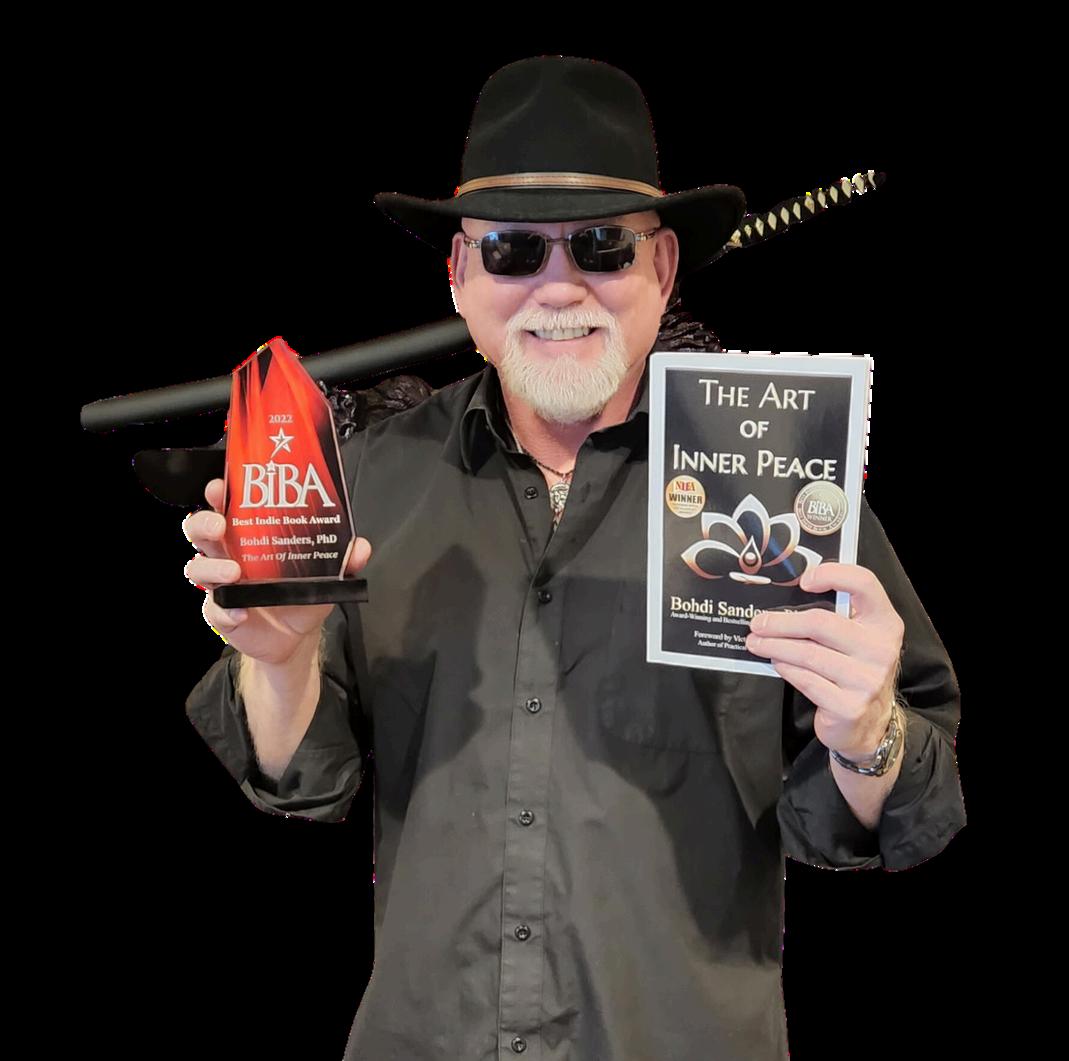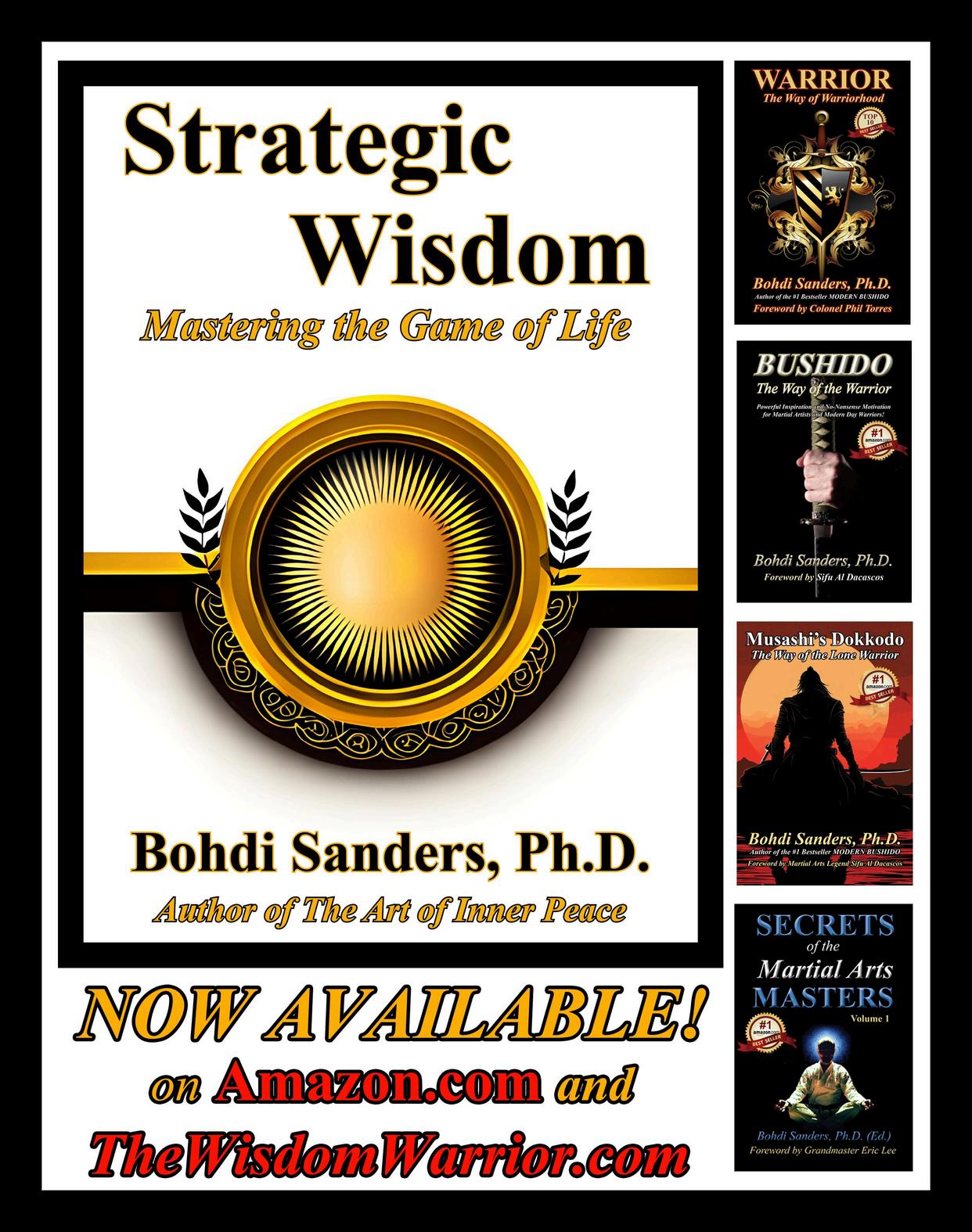
17 minute read
WARRIOR WRITER
International Martial Arts magazine Interviews Master Bohdi Sanders, The Wisdom Warrior
This month, we are interviewing Dr Bohdi Sanders, The Wisdom Warrior. Dr. Sanders is a 5th Dan in Shotokan Karate has a Ph.D. in Natural Health, has written 17 books and coined the terms “warrior wisdom,” “the warrior lifestyle,” and “Warrior philosophy.” Sanders has written hundreds of articles on martial arts and warrior philosophy and is a columnist for International Martial Arts Magazine.
IMA: What got you interested in martial arts?
Bohdi: I grew up street fighting. I knew what it meant to be caught in a bad, life-or-death situation with basically no options, and I didn’t like the feeling. One evening I got caught in a bad situation, and having had a bit too much to drink, I was not able to defend myself. I was left lying in the gravel behind a big hillbilly night club. I came to with only the collar of my shirt left around my neck and beat to a pulp.
That night I vowed never to be in that situation again, that I would never lose another fight. And to this day, I haven’t. After that beat-down, I happened to run into that same guy a few months later
He got in my face again but with different results. I never had any more trouble from him or his buddies after that. I had nowhere to learn martial arts, as I lived in rural Mississippi. It was another seven years after that before I walked into my first dojo.
IMA: Who was your first martial arts instructor?
Bohdi: My first instructors were Bob and Nikki Allen. I had a paint company in Louisiana and had just started taking classes with them. Their home was right behind their dojo. It was a big house and in bad shape Master Allen did not like the original price that I gave him and offered a trade. So, I painted his house for a lifetime of karate instruction. That was enough to get me hooked. I have been a martial artist ever since that day.
IMA: What is your style?
Bohdi: My official rank is in Shotokan Karate. I have a 5th Dan in Shotokan. I have also done some training in ninjutsu, krav maga, kajukenbo, and escrima
IMA: There is much philosophy in your writings and books. What were your influences?
Bohdi: I have always enjoyed philosophy and wisdom literature. Even as a teenager, I enjoyed studying quote books and different philosophies I have studied wisdom literature for over 40 years. I got into my studies seriously after my first bad car wreck. When you have a close call in life, it awakens you. I have studied virtually all religious teachings, which are amazingly similar when you get to the more profound teachings. I have also learned the teachings of the sages from throughout the world: the Stoics, the Greeks, the great teachers from Asia, and many others.
My books primarily explore martial arts and warrior philosophy, several of which have achieved the coveted #1 spot on Amazon’s Bestseller List. It's been quite a journey, considering I started without knowledge of martial arts. Today, I'm proud to call martial arts legends like Sifu Al Dacascos my personal friends and mentors, a testament to the depth of my immersion in this field
IMA: I know you have several college degrees. Where did you attend college?
Bohdi: I started my studies at Ole Miss, the University of Mississippi, and graduated from Fort Lewis College in Durango, CO. I studied computer science but got my first degree in sociology, with a minor in history. I also have advanced education and natural health degrees from Grand Canyon University and Clayton College. The martial arts taught me perseverance and determination, which I used to follow through on my degrees.
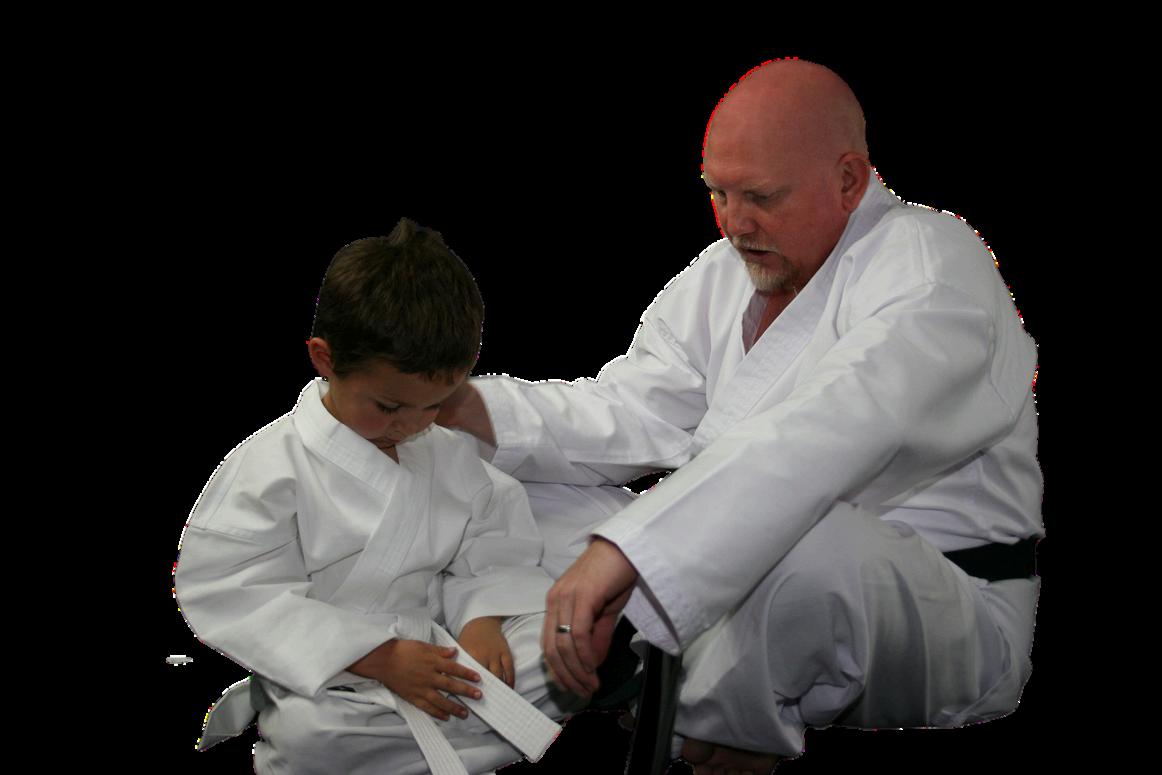
IMA: Have you taught martial arts or had your own dojo?
Bohdi: I taught my sons when they were very young. My older son, Stephen, continued to earn his black belt in Shotokan. I also taught briefly in a school in a small school in Missouri…that was back in 1998, only a year or two after I achieved my 1st Dan.
True wisdom is universal, meaning it applies to all people no matter where they are or how they live. Our schools and our children would be so much better off if the schools taught the wisdom of the sages and the Stoics in class.
I studied as much philosophy and wisdom literature as I could get my hands on. Used bookstores are great for finding a lot of philosophy books. When I started writing, I integrated my love of philosophy and wisdom literature with my love of the martial arts. I found that the philosophy and wisdom that I enjoyed fit in perfectly with my view of martial arts. That is the basis of my writings, and it has made me well-known. When I started my teachings, there was nobody else who was taking wisdom from the Stoics, the Greeks, Gracian, Goethe, and all the other sages, and integrating that wisdom with the martial arts.
Most of the martial arts books that had to do with philosophy only focused on philosophy from Sun Tzu and Musashi. Still, they left out much wisdom from Confucius, Lao Tzu, and philosophy from other parts of the world. I integrated wisdom from around the world into my teachings. Any person can learn something from anyone. Each sage has something unique to teach us, and they do so in their own way.
I used the teachings that I found fit with my philosophy. And those I did not find helpful, I left behind. Many people do not realize that martial arts are not limited to Asian countries. The term “martial arts” means the art of war or fighting and is not limited to Japan, China, or Korea. People worldwide have practiced “martial arts” for thousands of years. Look at the Greeks, the Trojans, the Romans, the Celts, the Israelites, etc. They all had their “martial arts” system, so why shouldn’t martial arts and warrior philosophy contain philosophies and wisdom from everywhere?
IMA: What is your philosophy about the best martial art or style?
Bohdi: Every martial art has unique offerings, and there's no one-size-fits-all regarding the best martial art or style. It's all about the individual. Each person is different, with unique bodies, muscle types, and injuries. This is why Bruce Lee advocated for a personalized approach, encouraging his students to adopt what worked for them and discard what didn’t
Despite my primary focus on Shotokan Karate, I've adopted an adaptable approach, taking what serves me and discarding what doesn’t This adaptability has become especially crucial after enduring several car wrecks and multiple surgeries. Some techniques are no longer practical or beneficial for me, and I've had to adjust accordingly.
True self-defense must consider everything. You must be smart and see all the angles Each person must know what they can do and what they cannot do. Not everyone is going to be like Bruce Lee or Chuck Norris. You must know your own strengths and weaknesses. Use your strengths to your advantage and defend your weaknesses. The question shouldn’t be “what’s the best martial art,” but rather, “what’s the best martial art for me?”
IMA: You write a lot about warrior wisdom or warrior philosophy, and you talk about the warrior lifestyle. What does this mean?
Bohdi: Warrior wisdom and warrior philosophy are simply wisdom/philosophy that motivates the warrior to live as he/she should. Warrior wisdom is wisdom from around the world that I have applied to the warrior lifestyle. I have gotten a lot of flak for using the term “the warrior lifestyle,” mostly from people who have no clue what it means to be a warrior. The warrior lifestyle is not some new fad or social media trend. It is simply the ideal of how true, balanced warriors can live their lives.
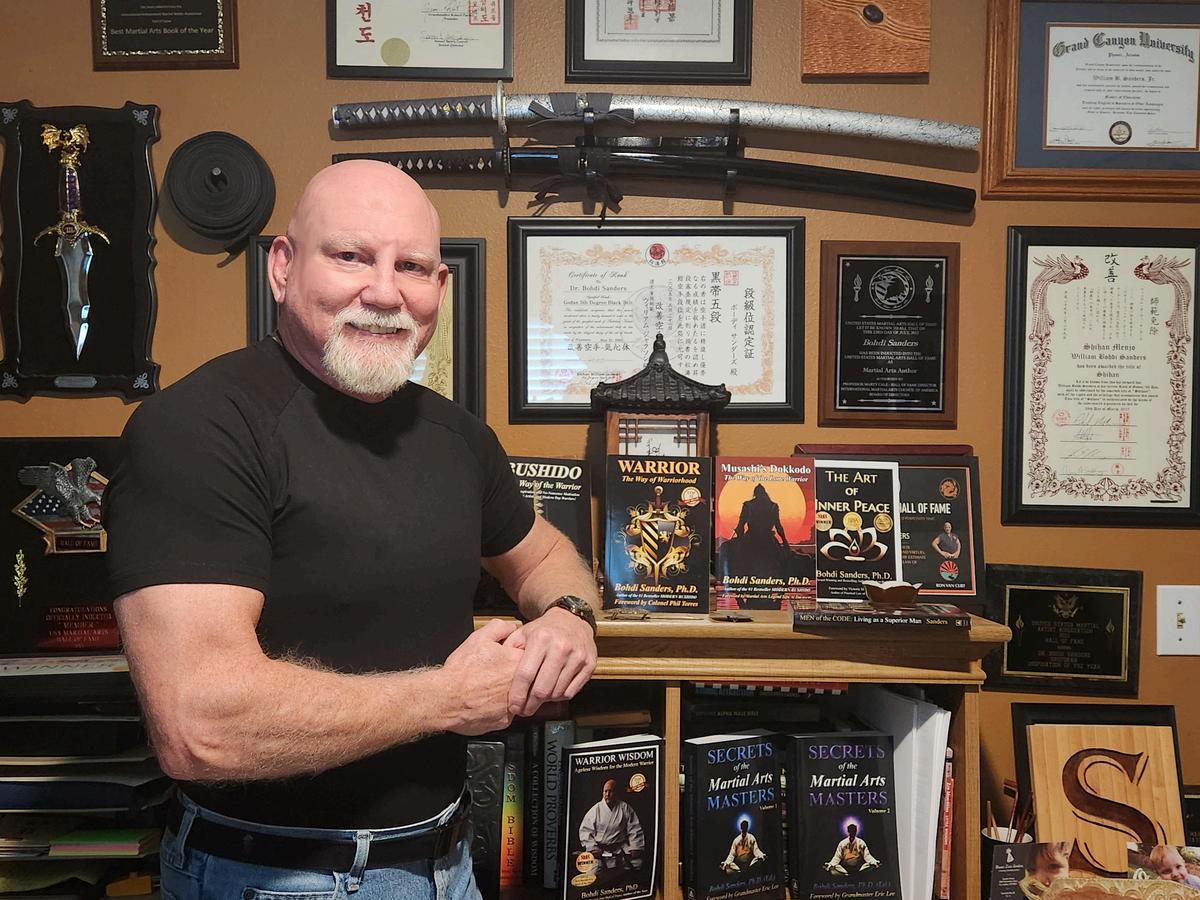
Master Gichin Funakoshi, the founder of modern-day karate, stated that the ultimate purpose of karate is the perfection of one ’ s character, and he wrote 20 precepts about how one should conduct oneself. These are ideals to aim for in life.
It’s the same for my teachings on the warrior lifestyle. It’s an ideal for people to live up to. It is about living a life of excellence in every area spirit, mind, and body. Of course, we all fall short of these ideals at times. But the warrior lifestyle is not about being perfect; nobody is perfect.
Every day is a new opportunity to start fresh and strive for perfection in your character. Falling short doesn’t mean you have failed; it just means you have identified a weakness in your character or your life that you need to improve.
The warrior lifestyle is based on character, honor, integrity, courage, and all the other character traits I write about It also involves working to perfect one's spirit and physical body. It aims for excellence in every area of life.
IMA: I know that when you use the term “warrior” or “warrior lifestyle,” it offends some people. Why do you think that is?
Bohdi: In this day and age, many people are offended every time the wind changes directions. There are people who actually look for things to be offended by. That is their issue, not mine. The people who are offended by my using those terms are mostly people with ego problems They want to believe that they are special and that only those who work in certain warrior jobs for a living should be able to use those terms.
That is simply ridiculous. Being a warrior has nothing to do with what you do for a living. There are people in the military who are absolutely bad ass warriors. On the other hand, I have seen people who were in the military who are not even close to being warriors. Being a warrior comes from the inside, from your spirit, not from your choice of livelihood.
I do know that my teachings have helped thousands of people worldwide, so I must be doing something right.
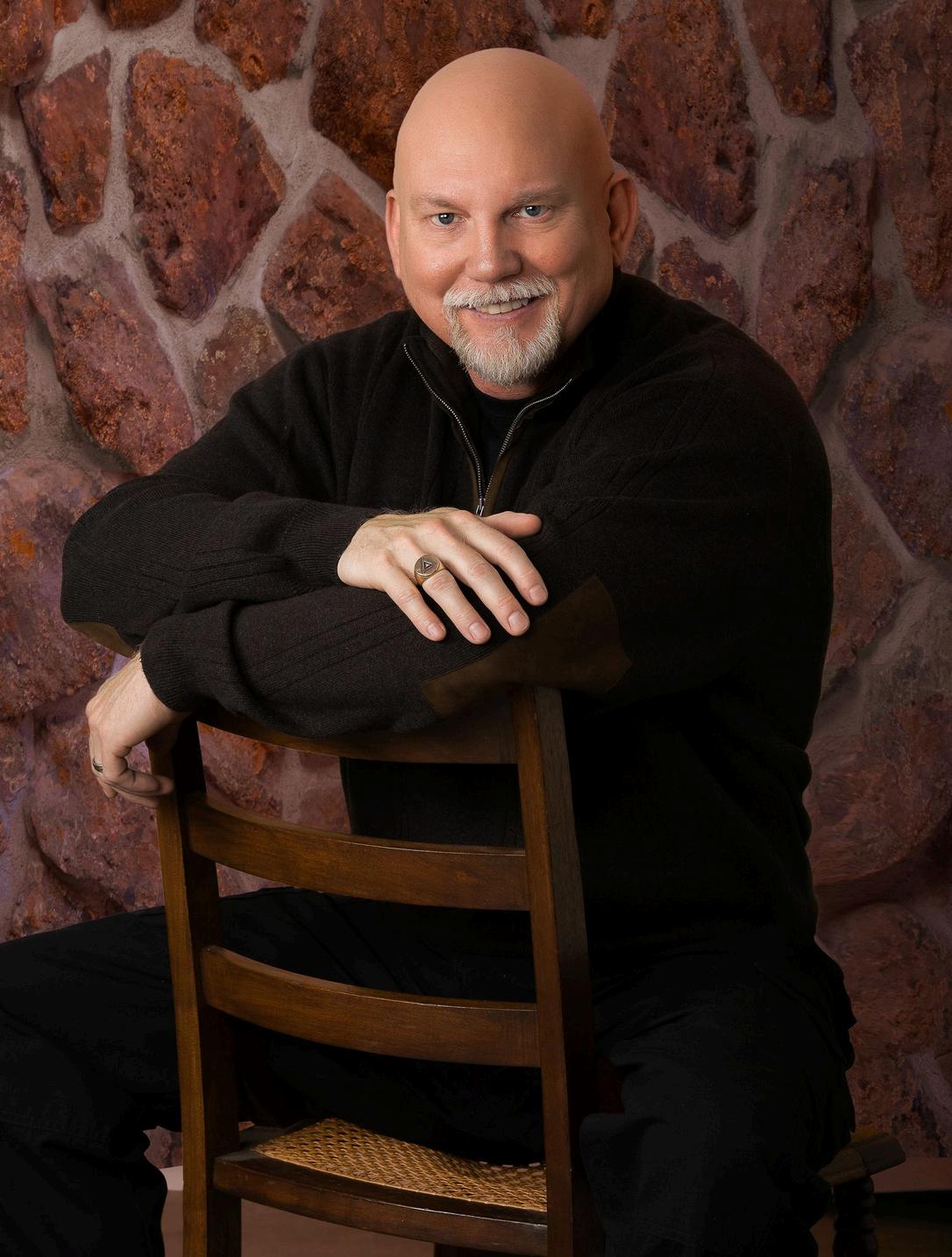
“Every day is a new opportunity to start fresh and strive for perfection in your character. “
Bohdi Sanders, Ph.D.
IMA: There are obviously different opinions or definitions of what being a warrior means. How do you define being a warrior?
Bohdi: My definition of a true warrior is someone who has the ability and will to fight to protect himself, his friends, his family, and his ideals, and at the same time, seeks the perfection of his own character through a life lived with honor, integrity, and an unflinching dedication to what is right according to his own code of ethics. The ability to fight is only a small part of this definition. The true warrior has to develop more than his martial arts skills. The qualities of the true warrior go much deeper than that.
Warriors should exhibit the best qualities among men. The true warrior makes a firm decision to try to perfect his character and to live by a strict code of ethics. His word is his honor. He lives life a little more seriously than most, but at the same time lives life to its fullest and doesn’t take himself too seriously. He sees through the veil of appearances without looking down on those who are less perceptive.
Family and friends are important to him, and they know that they can always count on him for protection and help in their times of need. He bases his decisions on his code of ethics, and he instinctively knows right from wrong and chooses right.
The true warrior’s code is ingrained in his spirit and is a part of his being. The warrior is a man who shoots for excellence in everything he does. These are the things which make someone a true warrior, and the development of these traits leads to the warrior lifestyle.
IMA: I have read where you stated that “self-defense leave nothing out.” What do you mean by this statement?
Bohdi: If you consider the state of our country today, you will understand that it is not just the malicious criminal that you must defend yourself against. Yes, you absolutely must keep your self-defense skills sharp, but you must also be aware that there are many things you must defend against. You must be careful about what you say, or someone will try to twist what you say and use it against you.
Online bullying is also a hazard that we must cope with in today’s online social media fair. Having to defend against attacks from the cyber realm is just as important as a physical defense
Some of these things are a part of complete self-defense. In fact, I would say that over your lifetime, you will have a much greater need to defend yourself against these other things than against some mugger or someone who wants to assault you physically. You must make sure that your self-defense is complete. True self-defense leaves nothing out!
IMA: What do you think is the biggest challenge for martial arts today?
I understand that people train in martial arts for different reasons, but authentic martial arts were never meant for sport or a hobby. Genuine martial arts were meant to be the art of war They were for selfdefense. Many dojos have forgotten this. The biggest challenge for martial arts is that they have been watered down because they lack a better term. Many have become little more than after-school daycare programs.
Another pressing issue in today’s martial arts is the prevalence of out-of-control egos. Some individuals will buy rank and titles or even bogus martial arts Hall of Fame awards It's important to note that many martial artists are unaware that some of these halls of fame are nothing more than money-making scams. Some are awarded a Martial Arts Hall of Fame award as the “Master of the Year,” and 40 others receive the same award, which clearly indicates a scam. To shed light on these scams, I've addressed these issues in my book, DEFIANCE: The Dark Side of the Martial Arts It's a stark reminder that the love of money is the root of all evil in the martial arts community.
IMA: Who would you say is your mentor in the martial arts?
Bohdi: I have two mentors. The first is Shihan William Jackson. He taught me down-and-dirty martial arts and a lot about survival. He was a survivalist who lived in the San Juan mountains outside of Dolores, Colorado. The other martial artist that I consider my mentor is Sifu Al Dacascos. I owe Sifu Al a lot. He has been a friend and mentor for years now. He is the best martial artist I have ever trained with.
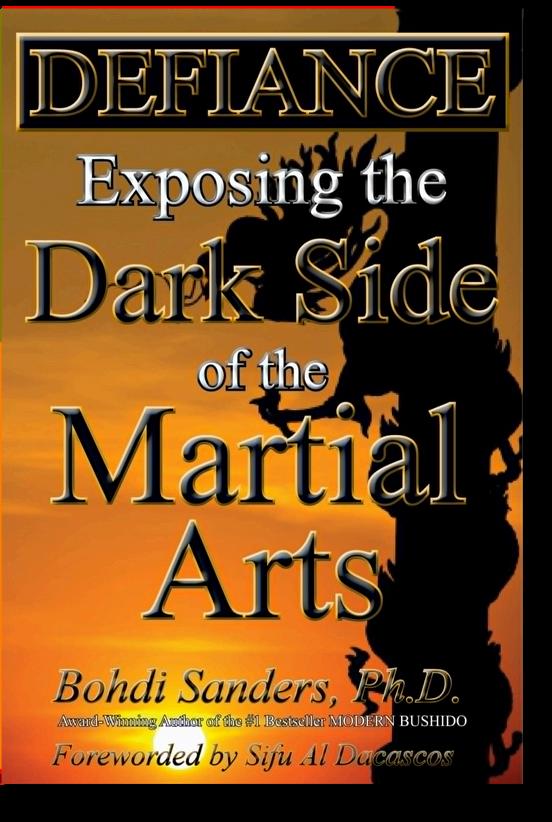
IMA: What are your most memorable moments in your martial arts journey?
Bohdi: In 1997, I started a Shotokan program with 65 students. I learned a lot by teaching those guys. I hold a couple of Martial Arts Hall of Fame inductions dear to my heart Through my writing, I have met so many amazing martial arts masters.
While working on my book series, Secrets of the Martial Arts Masters, I developed friendships with many great martial artists. Even Chuck Norris agreed to do a chapter for me. I was greatly honored to have so many great martial arts masters agree to participate in that project
Their willingness to share their knowledge and experiences for the benefit of the martial arts community was truly inspiring. I am deeply grateful to Grandmaster Fumio Demura and all the other masters who agreed to write a chapter for me.
IMA: You have written 17 books. Which is your favorite? Which is your fans’ favorite?
Bohdi: That is like asking which of my kids is my favorite. LOL I think they are all great books. I really do. I try to write the kind of books that I would buy. The book that I refer back to the most is titled Strategic Wisdom: Mastering the Game of Life.
IMA: You are now in your 60s. Do you have any advice for older people training in the martial arts?
Bohdi: Yes, I do The key is to be selfaware. You're not in your twenties anymore, and while you may still be formidable, you need to adjust your workouts. It's easy to feel good about yourself and believe you can still do what you once did, but it's also easy to overdo it and set your training back if you're not careful. Spend more time warming up and be much more cautious with your training It may sound obvious, but it's easy to start feeling really good about yourself and push things a little too far and injure yourself.
Grandmaster Richard Norton wrote a really good chapter on this subject for my Secrets of the Martial Arts Masters series. If you are an older martial artist, I highly recommend that you get a copy of that book and read his chapter.
It will make you feel better about getting older and still training
IMA: For someone interested in getting started on the warrior’s path, what should they do first and continue to keep in mind?
Bohdi: They should study the ways of the warrior. There are several good books which teach men and women the principles of warriorhood. My books are a great place to start. They have received high praise from both top martial artists and those with military experience.
I recommend that they do some reading and some self-reflection on how they are currently living. Then, take the knowledge that they learn and develop a personal code of honor. Find a good martial arts instructor who teaches and supports living a life of honor and integrity and models what he says he believes. Also, learn some real-world self-defense techniques if you haven’t already.
Living the warrior lifestyle is a journey; it is not a goal that you can achieve and then check off of your to-do list. It is a lifelong process. You have to continue to improve yourself each and every day. Living the warrior lifestyle is a never-ending journey, not a destination
IMO: Is there any certain order that you recommend someone read your books in?
Bohdi: Not really. When I am asked that question, I usually recommend that they start with Modern Bushido: Living a Life of Excellence, then BUSHIDO: The Way of the Warrior, and then Strategic Wisdom: Mastering the Game of Life. But each of my books stands alone and can be read in any order that the reader desires. Just like any other skill, my writing has improved over the years. Many readers like to read my books in order from the first to the last. That would be: 1) Warrior Wisdom 2) WARRIOR 3) The Warrior Lifestyle 4) Wisdom of the Elders 5) Secrets of the Soul 6) Strategic Wisdom 7) Modern Bushido 8) Men of the Code 9) Martial Arts Wisdom 10) BUSHIDO: The Way of the Warrior 11/12) Secrets of the Martial Arts Masters volume 1 & 2, 13) DEFIANCE: The Dark Side of the Martial Arts 14) The Art of Inner Peace 15) Musashi’s Dokkodo. I think I missed a couple, but that is a good list
IMO: Thank you for this interview and the great information, Bohdi.
Bohdi: You are very welcome. Thank you for putting out such a great martial arts magazine.
